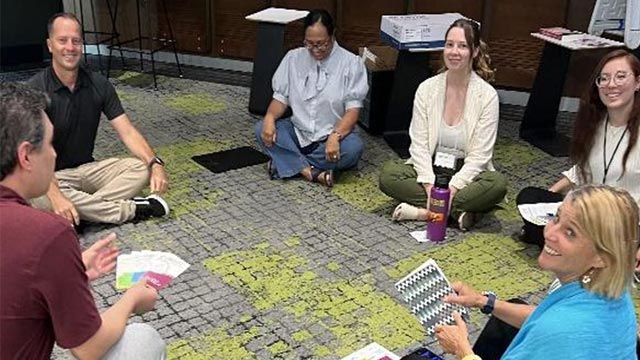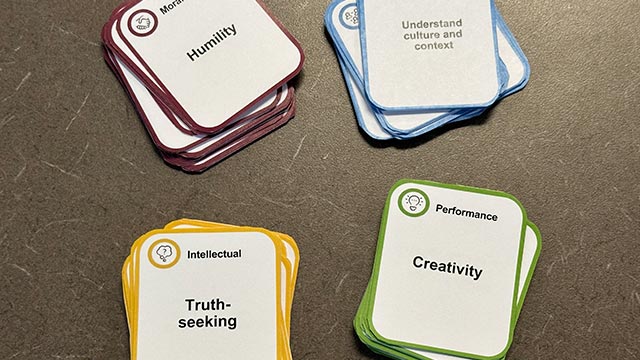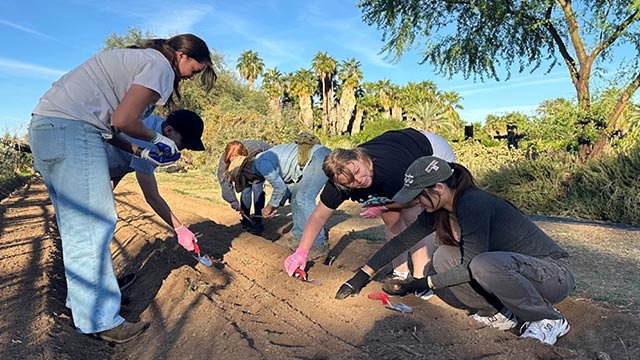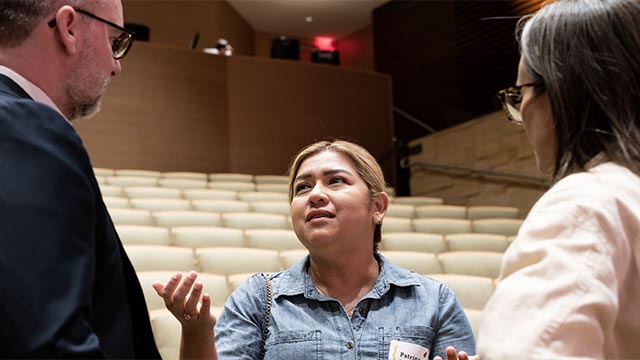Activities and tools
The Practice PI collection provides three approaches to engaging with Principled Innovation: learning the basics, using PI tools, and sharing PI with others. Here you'll find resources for each approach that have been selected by PI practitioners for their clarity, effectiveness, and accessible nature.
Learning the basics introduces the origins of PI and core concepts through reflection-based activities. Using PI tools offers hands-on strategies, including resources from the Atlas of Creative Tools®, to integrate PI into your daily life and work. Sharing PI with others provides guidance for fostering a culture of ethical innovation in your communities and organizations. Taken together, these approaches help individuals and teams learn about and engage with PI in meaningful ways.
ASU places character and values at the center of decisions and actions.
Learn the basics
This collection introduces the foundations of Principled Innovation, including its origins, core principles, and how values-driven decision-making supports ethical and responsible innovation.
The fundamentals of PI
This introductory resource provides a foundational understanding of Principled Innovation, its key practices, and how it shapes ethical decision-making. It serves as the first stop for those new to PI, offering links to a comprehensive framework for deeper exploration.
The PI approach
The PI approach provides ways of integrating reflective practices into innovation processes. It utilizes Communities of Practice, which serve as collaborative spaces where individuals engage reflectively and ethically, integrating PI principles to drive meaningful, values-based innovation.
Practice PI: ASU’s newest design aspiration
In 2023, ASU introduced Practice Principled Innovation as its ninth design aspiration, embedding character and values into decision-making. This approach ensures ethical, inclusive, and responsible innovation across the university, encouraging students, faculty, and leaders to create meaningful impact while considering long-term consequences.
PI: An origin story
Principled Innovation was co-created by faculty, staff, students, and community partners at the Mary Lou Fulton College for Teaching and Learning Innovation. Initially developed within the college, PI has since evolved into a university-wide design aspiration, guiding ethical and impactful decision-making across Arizona State University.
Use PI tools
The Tools collection offers highly practical resources from the Principled Innovation team and from our special partnership with Liz Lerman’s Atlas of Creative Tools®, providing hands-on strategies for applying PI principles right away in real-world contexts.




PI decision-making guide
This guide helps us navigate complex decisions with reflection, creativity, and ethical awareness. By immersing, reflecting, and acting with intention, we foster principled innovation rooted in values and collaboration.
Principled Innovation card decks
The PI Card Decks offer thought-provoking questions that spark reflection and dialogue. Available as physical and digital decks, they are increasingly in use across ASU to explore values, perspectives, and ethical decision-making in a variety of settings.
Principled Innovation continuum
The PI Continuum is a reflective tool that helps individuals, teams, and organizations assess their engagement with Principled Innovation, identifying strengths and growth areas across moral, civic, intellectual, and performance domains.
Contact us

“Do you want to learn more about Principled Innovation? Does your work exemplify PI, or would you like to incorporate PI into your organization’s culture or your next initiative? We’d love to hear from you.” – Jamie Craig